Our Services
The NCC team will assist your company in the adpotion of HPC solutions in research, development or industrial process, train your employees and facilitate access to computational resources. We offer free of charge consultations and „test before invest“ services. We also offer collaboration on specific projects with NCC experts – contact us.!
Machine learning / ML
Artificial intelligence / AI
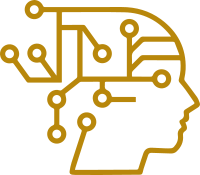
Process automation,
and data analysis
using neural networks.
Big data processing high
performance data analytics

Processing and analysis of large volumes
of data, high performance data
analytics.
Engineering,
Multiphysics simulations
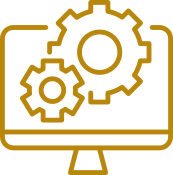
Computationally demanding simulations
and modelling,
e.g. prototypes.
Collaboration,
networking
Connecting providers and consumers of HPC solutions and facilitating partnerships between the academic, governmental, and private sectors at the national level.
Training courses,
lectures
Engaging online courses with experienced instructors, informative lectures on the use of HPC in science and industry, and pan-European events.
Collaborations
CODIUM
“The accelerated module of the Devana HPC system allowed us to test multiple approaches to addressing the prevention of pathological online gambling. Powerful GPGPU accelerators were applied in training and fine-tuning complex AI models.”
SHARK.AERO
“We used the HPC system for CFD (Computational Fluid Dynamics) simulations of uniform flow in 3D around a partial aircraft model at various speeds and angles of attack. Thanks to HPC, we were able to run multiple simulations concurrently. Access to high-performance infrastructure allowed us to work on a larger scale, which was a significant benefit for us as our local computer had limited memory.”
NETTLE.AI
“We used the Devana supercomputer for training language models that assist us in extracting key entities from text. This helps us create chatbot and voicebot applications with a new level of user experience.”
SKYMOVE
“Vďaka výnimočným vlastnostiam nového superpočítača sme mali možnosť otestovať výpočtové procesy pre klasifikáciu priestorových údajov a dokázali sme identifikovať procesy, ktoré povedú k efektívnejšej práci a lepším výsledkom po dobu najbližších rokov. Vidíme veľký potenciál aj pri úlohách, ktoré sú spojené s umelou inteligenciou.”
MicroStep-MIS
MicroStep-MIS has been working successfully in the field of environmental monitoring for 27 years. They collaborated with NCC for HPC on the project Estimation of computational capacities for large domains in numerical weather modeling using the Weather Research and Forecasting Model (WRF).
MultiplexDX
MultiplexDX is one of the most innovative biotech corporations, created to bring revolutionary technologies to the market of personalized molecular diagnostics. NCC for HPC supported projects:
SARS2 and flu diagnostics:
“Thanks to the NCC and the GISAID database we were able to process more than 400 000 SARS2 sequences and more than 100 000 flu sequences. The NCC assistance with installation of bioinformatics tools was very helpful as well, allowing us to prepare the data for diagnostic sets for SARS2 and flu indentification.”
Optimization of sequencing data preparation:
“Access to computational resources via the testing & development mode was utilized for analysis of various laboratory sets for the purpose of sequencing libraries preparation. Parameters of bioinformatics tools for data processing of RNA-seq cancer tissues were optimized, as well.”
GEODETICCA VISION
GEODETICCA VISION is a state of the art geoinformatics company focused on developing products and services for evidence-based decision making. Founded in 2008 has more than 13 years of experience in the field of geospatial imagery collection, processing and analysis as well as WebGIS applications development. We aerially mapped entire Slovakia and produced products as RGB and NIR orthophotos, DSM and DTM. Consequently, we developed and deployed www.geodatastore.sk to support business with mentioned products.
“As part of our collaboration, we had the opportunity to leverage the computational power of the Devana supercomputer, which provided invaluable assistance in refining our technology for automatically generating topologically clean objects from aerial and satellite images of the Earth. Thanks to Devana's high performance, we were able to achieve significant improvements in the accuracy of our algorithms in a short period. A key aspect of our collaboration was training artificial intelligence for object detection, classification, and subsequent vectorization, with Devana allowing us to quickly find optimal parameters for our algorithm. This collaboration has opened up new possibilities for further research and development in the field of geospatial data, ultimately contributing to the expansion of our services and increased satisfaction of our clients.”
 Intent Classification for Bank Chatbots through LLM Fine-Tuning 12 Sep - Tento článok hodnotí použitie veľkých jazykových modelov na klasifikáciu intentov v chatbote s preddefinovanými odpoveďami, určenom pre webové stránky bankového sektora. Zameriavame sa na efektivitu modelu SlovakBERT a porovnávame ho s použitím multilingválnych generatívnych modelov, ako sú Llama 8b instruct a Gemma 7b instruct, v ich predtrénovaných aj fine-tunovaných verziách. Výsledky naznačujú, že SlovakBERT dosahuje lepšie výsledky než ostatné modely, a to v presnosti klasifikácie ako aj v miere falošne pozitívnych predikcií.
Intent Classification for Bank Chatbots through LLM Fine-Tuning 12 Sep - Tento článok hodnotí použitie veľkých jazykových modelov na klasifikáciu intentov v chatbote s preddefinovanými odpoveďami, určenom pre webové stránky bankového sektora. Zameriavame sa na efektivitu modelu SlovakBERT a porovnávame ho s použitím multilingválnych generatívnych modelov, ako sú Llama 8b instruct a Gemma 7b instruct, v ich predtrénovaných aj fine-tunovaných verziách. Výsledky naznačujú, že SlovakBERT dosahuje lepšie výsledky než ostatné modely, a to v presnosti klasifikácie ako aj v miere falošne pozitívnych predikcií.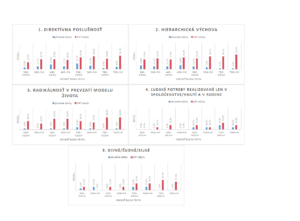 Leveraging LLMs for Efficient Religious Text Analysis 5 Aug - The analysis and research of texts with religious themes have historically been the domain of philosophers, theologians, and other social sciences specialists. With the advent of artificial intelligence, such as the large language models (LLMs), this task takes on new dimensions. These technologies can be leveraged to reveal various insights and nuances contained in religious texts — interpreting their symbolism and uncovering their meanings. This acceleration of the analytical process allows researchers to focus on specific aspects of texts relevant to their studies.
Leveraging LLMs for Efficient Religious Text Analysis 5 Aug - The analysis and research of texts with religious themes have historically been the domain of philosophers, theologians, and other social sciences specialists. With the advent of artificial intelligence, such as the large language models (LLMs), this task takes on new dimensions. These technologies can be leveraged to reveal various insights and nuances contained in religious texts — interpreting their symbolism and uncovering their meanings. This acceleration of the analytical process allows researchers to focus on specific aspects of texts relevant to their studies.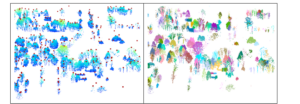 Mapping Tree Positions and Heights Using PointCloud Data Obtained Using LiDAR Technology 25 Jul - Cieľom spolupráce medzi Národným superpočítačovým centrom (NSCC) a firmou SKYMOVE, v rámci projektu Národného kompetenčného centra pre HPC, bol návrh a implementácia pilotného softvérového riešenia pre spracovanie dát získaných technológiou LiDAR (Light Detection and Ranging) umiestnených na dronoch.
Mapping Tree Positions and Heights Using PointCloud Data Obtained Using LiDAR Technology 25 Jul - Cieľom spolupráce medzi Národným superpočítačovým centrom (NSCC) a firmou SKYMOVE, v rámci projektu Národného kompetenčného centra pre HPC, bol návrh a implementácia pilotného softvérového riešenia pre spracovanie dát získaných technológiou LiDAR (Light Detection and Ranging) umiestnených na dronoch. Semi-Supervised Learning in Aerial Imagery: Implementing Uni-Match with Frame Field learning for Building Extraction 21 Jun - Extrakcia budov v Geografických informačných systémoch (GIS) je kľúčová pre urbanistické plánovanie, environmentálne štúdie a riadenie infraštruktúry, pretože umožňuje presné mapovanie stavieb, vrátane odhaľovania nelegálnych stavieb za účelom dodržiavania právnych predpisov, alebo efektívnejšieho vyberania daní. Integrácia extrahovaných údajov o budovách s inými geopriestorovými vrstvami zlepšuje pochopenie dynamiky miest a priestorových vzťahov.
Semi-Supervised Learning in Aerial Imagery: Implementing Uni-Match with Frame Field learning for Building Extraction 21 Jun - Extrakcia budov v Geografických informačných systémoch (GIS) je kľúčová pre urbanistické plánovanie, environmentálne štúdie a riadenie infraštruktúry, pretože umožňuje presné mapovanie stavieb, vrátane odhaľovania nelegálnych stavieb za účelom dodržiavania právnych predpisov, alebo efektívnejšieho vyberania daní. Integrácia extrahovaných údajov o budovách s inými geopriestorovými vrstvami zlepšuje pochopenie dynamiky miest a priestorových vzťahov.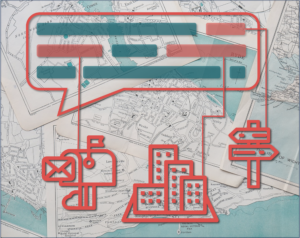 Named Entity Recognition for Address Extraction in Speech-to-Text Transcriptions Using Synthetic Data 22 Dec - Many businesses spend large amounts of resources for communicating with clients. Usually, the goal is
to provide clients with information, but sometimes there is also a need to request specific information
from them.
In addressing this need, there has been a significant effort put into the development of chatbots
and voicebots, which on one hand serve the purpose of providing information to clients, but they can
also be utilized to contact a client with a request to provide some information.
A specific real-world example is to contact a client, via text or via phone, to update their postal address. The address may have possibly changed over time, so a business needs to update this information
in its internal client database.
Named Entity Recognition for Address Extraction in Speech-to-Text Transcriptions Using Synthetic Data 22 Dec - Many businesses spend large amounts of resources for communicating with clients. Usually, the goal is
to provide clients with information, but sometimes there is also a need to request specific information
from them.
In addressing this need, there has been a significant effort put into the development of chatbots
and voicebots, which on one hand serve the purpose of providing information to clients, but they can
also be utilized to contact a client with a request to provide some information.
A specific real-world example is to contact a client, via text or via phone, to update their postal address. The address may have possibly changed over time, so a business needs to update this information
in its internal client database. 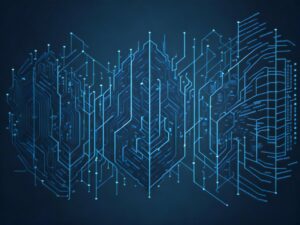 Anomaly Detection in Time Series Data:
Gambling prevention using Deep Learning 28 Jun - Gambling prevention of online casino players is a challenging ambition with positive impacts both on player’s well-being, and for casino providers aiming for responsible gambling. To facilitate this, we propose an unsupervised deep learning method with an objective to identify players showing signs of problem gambling based on available data in a form of time series. We compare the transformer-based autoencoder architecture for anomaly detection proposed by us with recurrent neural network and convolutional neural network autoencoder architectures and highlight its advantages. Due to the fact that the players’ clinical diagnosis was not part of the data at hand, we evaluated the outcome of our study by analyzing correlation of anomaly scores obtained from the autoencoder and several proxy indicators associated with the problem gambling reported in the literature.
Anomaly Detection in Time Series Data:
Gambling prevention using Deep Learning 28 Jun - Gambling prevention of online casino players is a challenging ambition with positive impacts both on player’s well-being, and for casino providers aiming for responsible gambling. To facilitate this, we propose an unsupervised deep learning method with an objective to identify players showing signs of problem gambling based on available data in a form of time series. We compare the transformer-based autoencoder architecture for anomaly detection proposed by us with recurrent neural network and convolutional neural network autoencoder architectures and highlight its advantages. Due to the fact that the players’ clinical diagnosis was not part of the data at hand, we evaluated the outcome of our study by analyzing correlation of anomaly scores obtained from the autoencoder and several proxy indicators associated with the problem gambling reported in the literature. Measurement of microcapsule structural parameters using artificial intelligence (AI) and machine learning (ML) 30 Jun - The main aim of collaboration between the National Competence Centre for HPC (NCC HPC) and the Institute of Polymers of SAV (IP SAV) was design and implementation of a pilot software solution for automatic processing of polymer microcapsules images using artificial intelligence (AI) and machine learning (ML) approach. The microcapsules consist of semi-permeable polymeric membrane which was developed at the IP SAV.
Measurement of microcapsule structural parameters using artificial intelligence (AI) and machine learning (ML) 30 Jun - The main aim of collaboration between the National Competence Centre for HPC (NCC HPC) and the Institute of Polymers of SAV (IP SAV) was design and implementation of a pilot software solution for automatic processing of polymer microcapsules images using artificial intelligence (AI) and machine learning (ML) approach. The microcapsules consist of semi-permeable polymeric membrane which was developed at the IP SAV.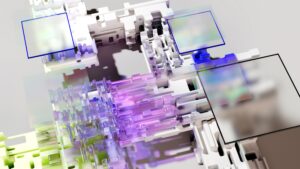 Use case: Transfer and optimization of CFD calculations workflow in HPC environment 15 May - Shark Aero company designs and manufactures ultralight sport aircrafts with two-seat tandem cockpit. For design development they use popular open-source software package openFOAM [1]. The CFD (Computational Fluid Dynamics) simulations use the Finite Elements Method (FEM). After the model is created, using a Computer-Aided Design (CAD) software, it is divided into discrete cells, so called “mesh”. The simulation accuracy depends strongly on mesh density with the computational and memory requirements rising with the 3rd power of the number of mesh vertices.
For some simulations the computational demands can be a limiting factor. Workflow transfer into High-Performance Computing (HPC) environment was thus undertaken, with a special focus on the investigation of computational tasks parallelization efficiency for a given model type.
Use case: Transfer and optimization of CFD calculations workflow in HPC environment 15 May - Shark Aero company designs and manufactures ultralight sport aircrafts with two-seat tandem cockpit. For design development they use popular open-source software package openFOAM [1]. The CFD (Computational Fluid Dynamics) simulations use the Finite Elements Method (FEM). After the model is created, using a Computer-Aided Design (CAD) software, it is divided into discrete cells, so called “mesh”. The simulation accuracy depends strongly on mesh density with the computational and memory requirements rising with the 3rd power of the number of mesh vertices.
For some simulations the computational demands can be a limiting factor. Workflow transfer into High-Performance Computing (HPC) environment was thus undertaken, with a special focus on the investigation of computational tasks parallelization efficiency for a given model type.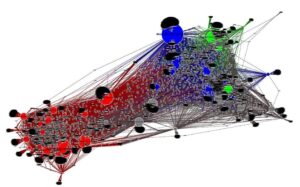 MEMO98 12 Apr - MEMO98 is a non-profit non-government organisation that has been monitoring the media in context of elections and other events for more than 20 years, and has carried out its activities in more than 50 countries. Recently, the organisation has also been dealing with the impact of social media on the integrity of electoral processes.
MEMO98 12 Apr - MEMO98 is a non-profit non-government organisation that has been monitoring the media in context of elections and other events for more than 20 years, and has carried out its activities in more than 50 countries. Recently, the organisation has also been dealing with the impact of social media on the integrity of electoral processes.

